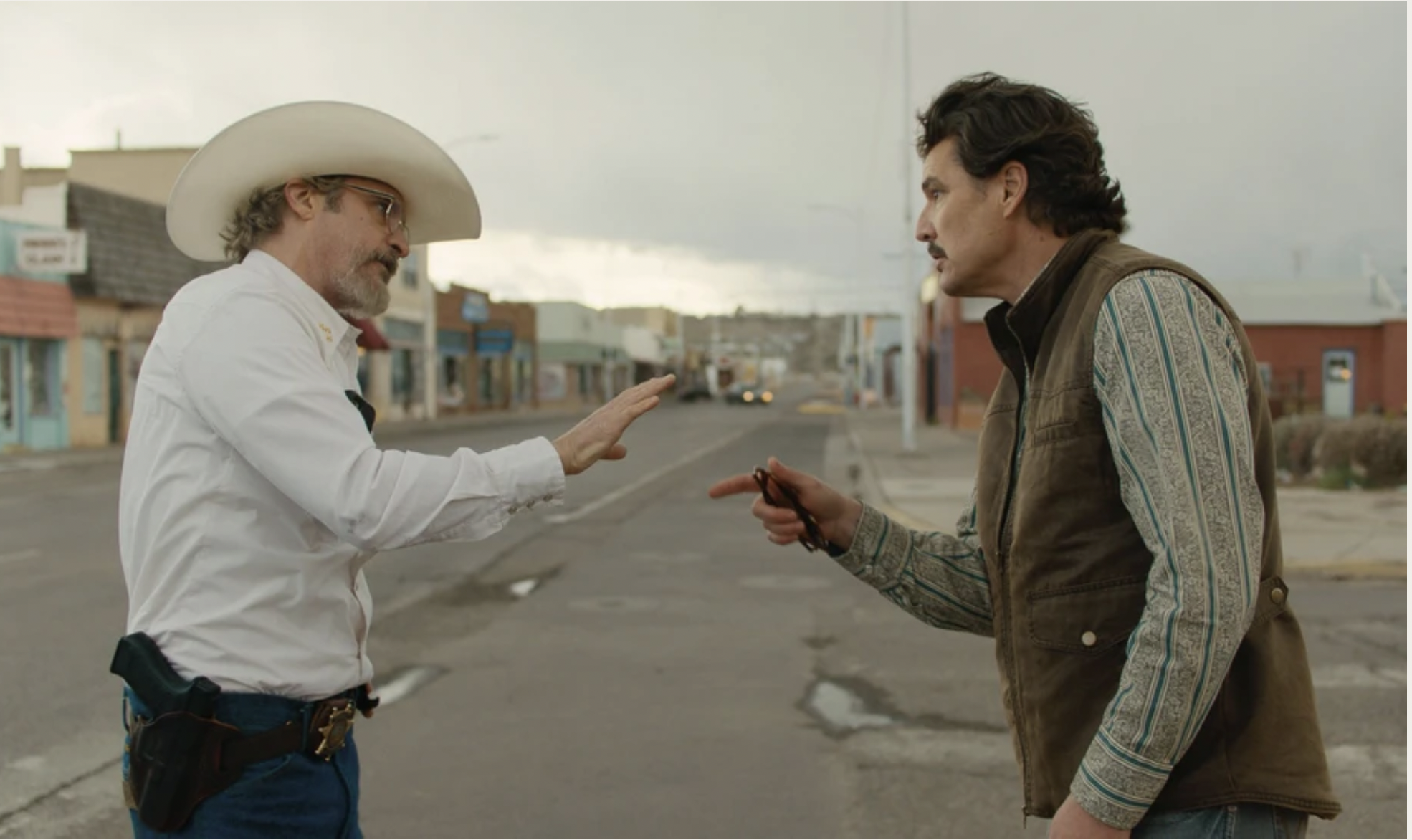
With a starry cast including Joaquin Phoenix, Emma Stone, Pedro Pascal and Austin Butler, horror mastermind Ari Aster takes on the Western to great success.
The Covid pandemic feels so distant now, it’s hard to remember just how much it changed us all. Ari Aster’s new western Eddington, named after the fictional New Mexico town where events take place, brings us right back and holds a bleak mirror to American society, revealing the divide caused in communities, among neighbours, and across the country. But this is not a period piece. As a work of allegory that points to our divided times, it’s more pertinent today. That is, when it takes itself seriously.
For a brisk two and a half hours, we follow small-town sheriff Joe (Joaquin Phoenix) as he decides to take on local mayor Ted Garcia (Pedro Pascal) during the COVID pandemic and the death of George Floyd. That’s a very basic read on the premise, which also includes a large roster of townsfolk with their own wants and needs. The second half is considerably more insane.
There are some excellent ideas here, and Eddington is bound to be divisive, received in many different ways. But it doesn’t always live up to the courageous premise it teases in the first third. What could be a creepy parable on how good people slowly turn “Deplorable”, is instead jostled out for shootouts and violent gags by the end. It could either be that Aster preferred to have fun in this new, Western setting—if you like the Coen Brothers dark Americana fables, you’ll be having a sense of déjà-vu with Blood Simple. But it might also be that he just wasn’t sure how to stick the landing on what could’ve been a profound story of how society, and internet culture being a big part of that, makes us into monsters.
Already, some critics are calling it “anti-left” and others have taken it, more accurately in my opinion, as a criticism of populist America. What Aster does pretty well is strike a balance between right and left; trying to understand the appeal of both groups and showing, rather empathetically, how extremism takes over even the most well-meaning of us. I believe he wants people from across the spectrum to watch this, and consider their place on it. You will see yourself through some of the characters. I did.
That’s because our politics are rooted in the irrational. The sheriff isn’t anti-mask because of his learned libertarian ethics but because of a grudge he has towards the mayor, for reasons explained pretty early on. Young student Brian isn’t organising Black Lives Matter protests because of a deep sympathy for racial violence. He wants to get laid with the pretty progressive girl from high school.
This is where Aster’s film thrives. It’s also where the humour excels, showing us how desperate and pathetic people really are. But before this has time to process, the tone of the movie changes. It then becomes a blustering action thriller, a brutal redneck nightmare as the town becomes a microcosm of the country and is swallowed by violence. Aster’s horror chops, as seen in Midsommar and Hereditary, come in great use here, but it also starts to feel like a tale of two movies. And the tones are so far removed from the other, you’ll either be longing for the slow, smart burn of the first half or wishing that the entire two-plus hours were action and gallows humour.
Eddington is worth seeing. When it gets the tone right, Aster’s work can be revelatory in how it conveys what it wants to say. Plus the performances are excellent across the board. It’s just a shame that for a film so close to being great, it seems content with not being at least a little brave. In the end, the feeling it leaves you with, and the questions it puts out to audiences, are potent enough that it won’t be easily forgotten and I suspect it will cause a lot of debate when it sees a theatrical release. To that extent, Eddington is a success.





